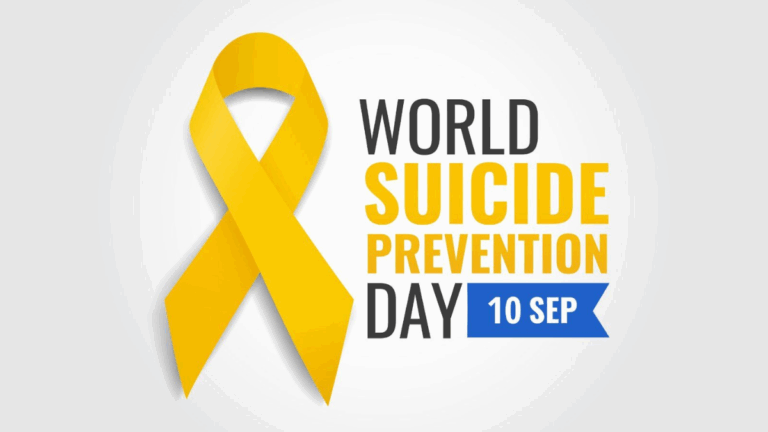World Suicide Prevention Day 2025
Play Your Part on Suicide Prevention Day
Scotland has a lot to be proud of – breathtaking landscapes, world-class cultural festivals, life-changing scientific discoveries and pioneering sporting achievements. But it also has the highest suicide rate in the UK, a title no Scot should be proud of.
Wednesday 10th September is officially World Suicide Prevention Day, a day we should come together, reflect on those rates and ask ourselves what we can do to help. We all have an important role to play, and it starts with opening up the conversation and raising awareness, so those at their most vulnerable can get the help and support they so desperately need.
Know the Facts
The current suicide rate in Scotland is 14.8 suicides per 100,000. Statistics like this can sometimes feel quite abstract, but it equates to roughly 800 people dying by suicide per year. It’s a staggering figure but it doesn’t tell the whole story. Each one of those people was somebody’s relative, friend or colleague, and the shock and grief felt by those left behind will no doubt manifest in a multitude of ways for many years to come.
Look Out for the Warning Signs
Males are three times more likely to die by suicide than females, and according to the latest UK government statistics, the age group with the highest rate of suspected suicide is those aged 45 to 64.
What’s more, people living in Scotland’s most deprived areas are two and a half times more likely to die by suicide than those living in the least deprived areas.
That said, suicide has the potential to affect anyone at any time. And that is why it is so important to be aware of the potential warning signs so you can look out for friends, family and colleagues, and step in to help if needed. Doing so could just save a life.
Common signs and symptoms of suicidal behaviour include:
· Withdrawing and isolating themselves from friends, family, work and society
· Reckless or risky behaviour
· Extreme mood swings
· Changes to eating and sleeping habits
· Anxiety and agitation
· Increased substance use such as alcohol or drugs
· Feeling shame, overwhelm, hopelessness, or feeling like a burden
Step in and Support
If you suspect someone is suicidal, it is important that you step in to help them. It may feel like a daunting task, but here are some key things to remember:
1. Ask them if they are OK and ask them if they are having suicidal thoughts.
2. Listen without judgement.
3. Acknowledge what they have told you.
4. Reassure them that they are not alone.
5. Keep them safe by reducing access to anything lethal.
6. Seek professional help. Call 999 if the person is in immediate danger or has the means to cause themself immediate harm.
Ask for Help
If you’re experiencing suicidal thoughts or you’re worried about someone you know, help is available.
Call the Samaritans anytime 24/7 completely free from any phone on 116 123, or head to www.samaritans.org to access a range of resources.
Alternatively, get in touch with any of the following support groups:
· Andy’s Man Club: www.andysmanclub.co.uk
· Breathing Space: www.breathingspace.scot
· Chris’s House: www.chrisshouse.org
· Papyrus: www.papyrus-uk.org
· SOS Silence Of Suicide: www.sossilenceofsuicide.org
· Suicide Prevention Scotland: www.suicideprevention.scot
· Survivors of Bereavement by Suicide: www.uksobs.com
· The Canmore Trust: www.thecanmoretrust.co.uk


